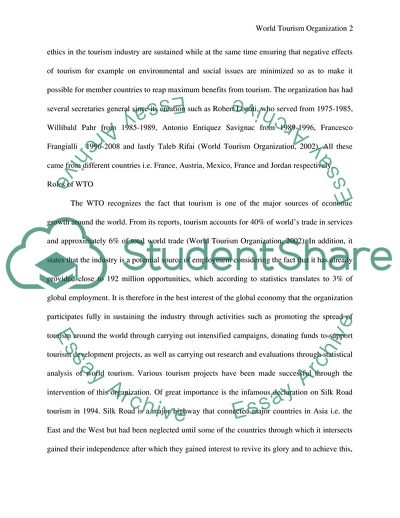Cite this document
(World Tourism Organization and Its Key Responsibilities Essay, n.d.)
World Tourism Organization and Its Key Responsibilities Essay. Retrieved from https://studentshare.org/tourism/1735831-evaluateanalyse-wtoworld-tourism-org
World Tourism Organization and Its Key Responsibilities Essay. Retrieved from https://studentshare.org/tourism/1735831-evaluateanalyse-wtoworld-tourism-org
(World Tourism Organization and Its Key Responsibilities Essay)
World Tourism Organization and Its Key Responsibilities Essay. https://studentshare.org/tourism/1735831-evaluateanalyse-wtoworld-tourism-org.
World Tourism Organization and Its Key Responsibilities Essay. https://studentshare.org/tourism/1735831-evaluateanalyse-wtoworld-tourism-org.
“World Tourism Organization and Its Key Responsibilities Essay”. https://studentshare.org/tourism/1735831-evaluateanalyse-wtoworld-tourism-org.


